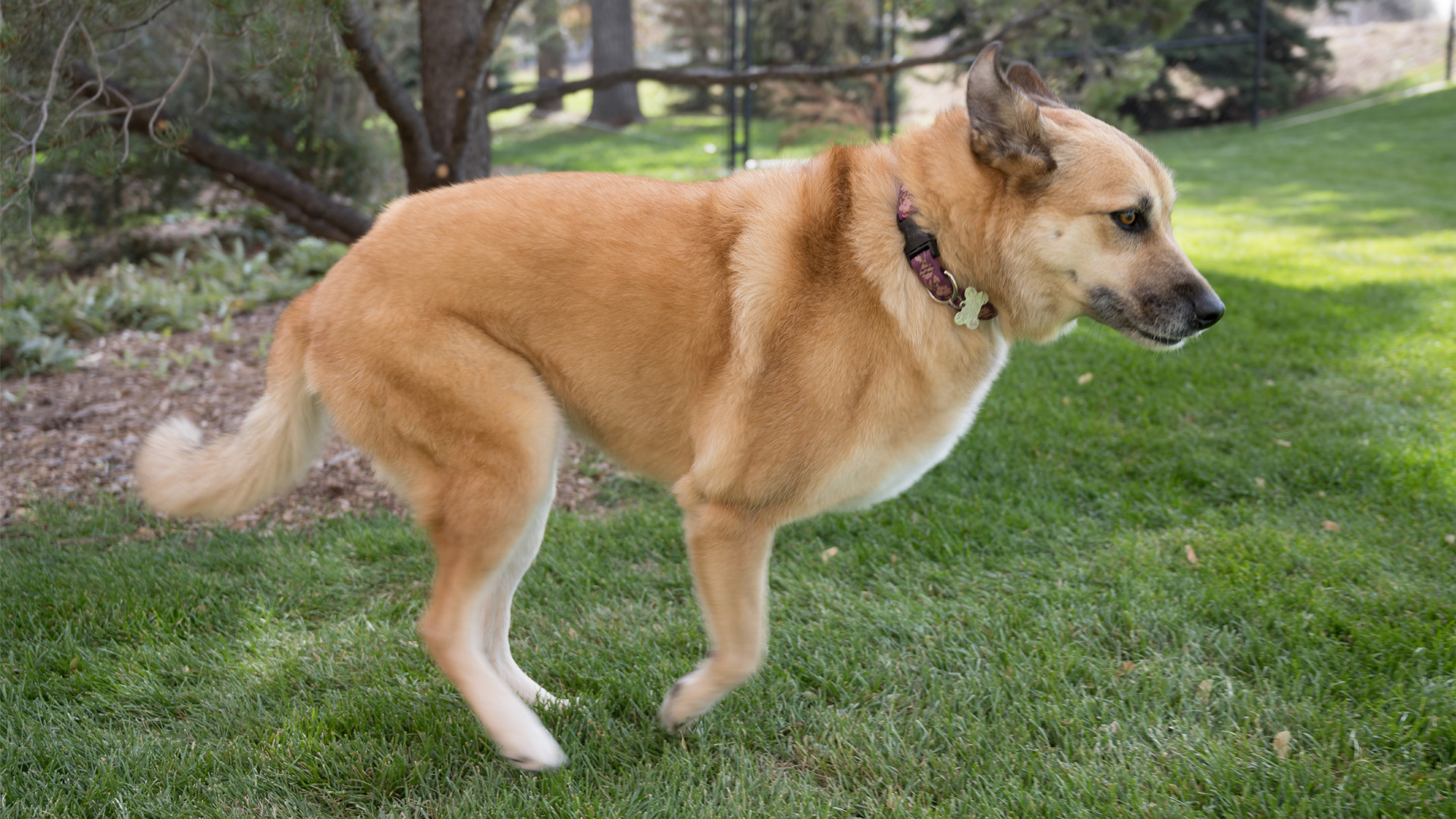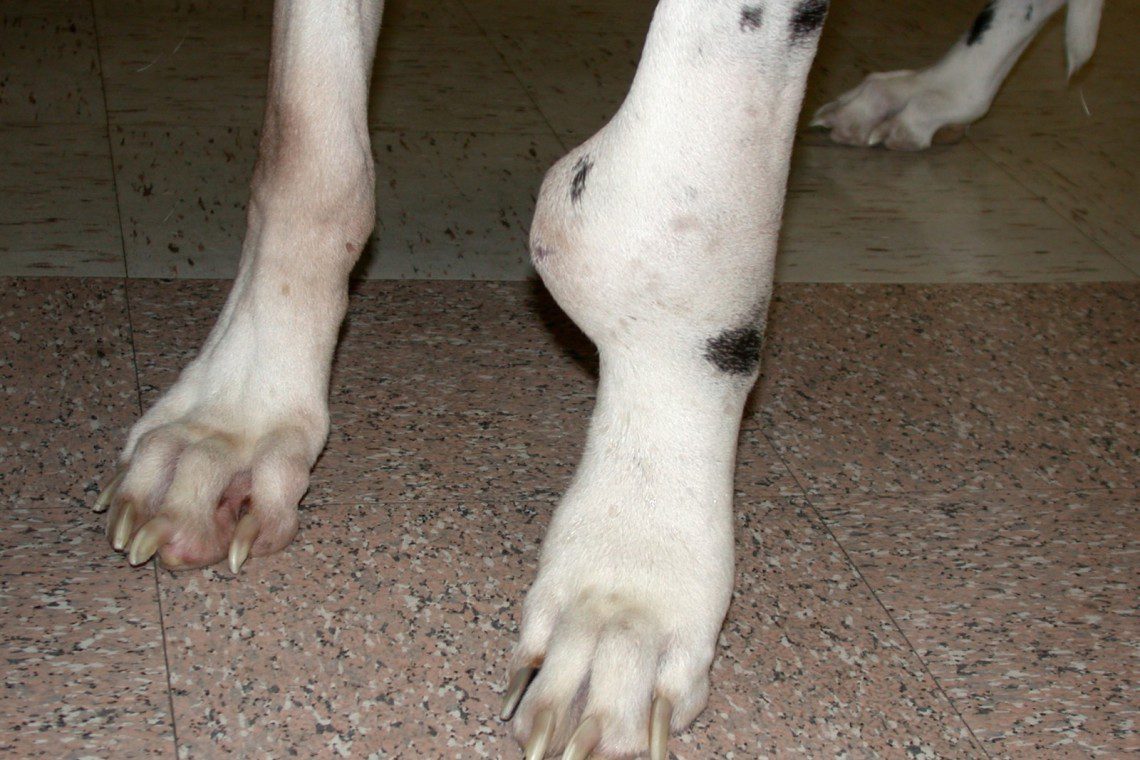
Some dogs will have a short span of happy days after their cancer diagnosis. Is amputating his leg to stop this my only option.

Some dogs will have a short span of happy days after their cancer diagnosis.
How long will a dog live with bone cancer. Few of research focus on what happens to be untreated cases and those that are often limited in follow-up information conclusions are somewhat unclear. According to scientists the average lifespan of those dogs is about 2 to 3 months. Depending on the type of cancer your dog suffers from different short-term survival.
How long can a dog live after being diagnosed with this kind of cancer. Because lymphoma is often widespread surgery is often unable to remove all traces of cancer. Chemotherapy is a common treatment to help slow the spread of the diseaseas left untreated the average life expectancy for dogs after diagnosis under three months.
Untreated dogs with bone cancer have a life expectancy of 1-4 months however there are several treatment options that can prolong a dogs life span. Amputation combined with other treatments can allow a dog to live for 1-2 years longer than if untreated. It is important for having a cancer either a dog especially is bone one so it is better you ask a veterinary surgeon who can give any information of cancer and how long does it can live actually.
I had a dog who had a cancer then she just could live in a few months she was my favorite one when I think of her I feel sad and memory of her. Dog has bone cancer. My dog has been limping for some time now.
His toe has been diagnosed with Bone Cancer-the vet had looked at this putting him on Steroids and anti inflammatories. My question is how fast does this progress in a small dog. Is amputating his leg to stop this my only option.
Dogs with amputation only almost all die within in one year. The statistic is 90-100. Only 2 of dogs with only amputation are still alive at two years.
Median survival times for OSA cases with amputation and chemotherapy increase to ten to twelve months. If a dog gets both amputation and chemotherapy 20-25 are still alive at two years. While some pet parents discover a dogs cancer during a drastic decline in their health others may discover the issue during a routine exam of their happy pup.
Some dogs will have a short span of happy days after their cancer diagnosis. Their dog was also sick at the time of diagnosis further reducing their interest in pursuing aggressive treatment. In each instance above despite the identical diagnosis the survival times are vastly different1 day versus 20 months.
These examples demonstrate several key points. Melanoma - if developed in the toes is usually incurable 4. Osteosarcoma - with aggressive treatment 50 last one year less than 10 live 3 years 5.
With pets living longer than ever cancer has become a diagnosis that we see more commonly in older dogs. The American Veterinary Medical Association AVMA reports that one in four dogs will develop cancer at some time in their life and that 50 of pets over the age of 10 will develop cancer. While there are treatments and methods for achieving.
If you have a dog with lympho and your dog is doing well 6 months after diagnosis you are already beating the curve since median survival is as low as 6 months in some cases with the chemo. What if your dog has lympho and is on pred only. Median survival for those dogs is roughly 2 or 3 months.
However the prognosis remains poor with surgery alone. 90 of dogs will die of this disease within one year if surgery is the only treatment attempted. Chemotherapy can help prolong remissions with some dogs living years after amputation and chemotherapy.
When your dog passes it can be a time of overwhelming grief and sadness. It can take weeks or months to even begin the healing process. We never forget our dog friends but time helps to lessens the severity of the pain.
In an effort to make you feel better some people may say to you that it was just a dog. Survival rate also depends on the specific type of bone cancer that your dog has and the probability of re-occurrence with the disease. A childhood friend who is now a vet tried to provide hope by urging us to do the full chemo protocol ASAP That could send Jack into remission for usually 9 to 12 months.
However they can live. The life expectancy of a dog with an aggressive tumor that has spread to other parts of the body mediatized is roughly 4 to 6 months. Assuming the mast cell is in a place where it can be completely removed through surgery including a wide margin to account for cancer cells not seen there is a 90 100 chance the tumor will not recur.